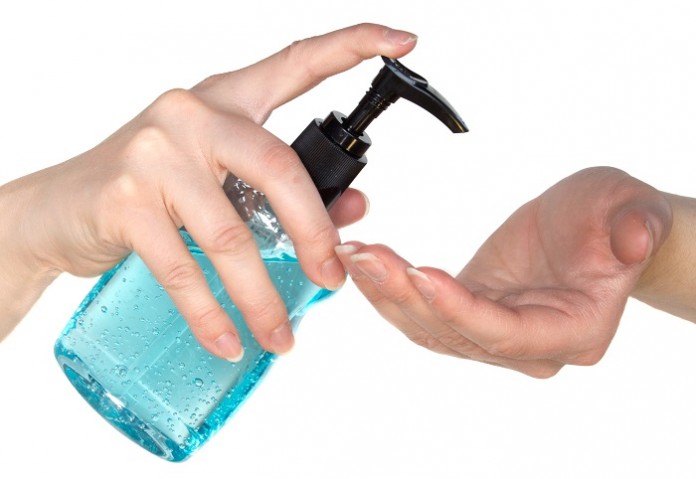Abstract:
In the Nigerian healthcare space there has been increasing awareness and moves towards effective hand hygiene practice in healthcare facilities. As healthcare managers seek to balance the availability of infection prevention tools for health workers with the resources required to procure them, we have observed an increase in the range of solutions available, both locally manufactured and produced outside the country. Specifically considering alcohol-based hand sanitisers, where the procurement of commercial brand is not possible, there are options to manufacture locally if the resources are available to do so. In Nigeria, it is useful to observe the practice where facilities choose to manufacture preparations for own use and the effectiveness, standards and safety of the process.
Main Article:
In this document we consider the benefits and challenges of local production of alcohol-based hand rubs (ABHR) in the Nigerian healthcare system.
Promoted globally by the World Health Organization (WHO) since 2010¹, local production has been adopted in some tertiary facilities as the preferred means of providing for ABHR for their staff at the ‘point of care’ (POC). This is recommended by WHO and satisfies the urgent need to make available hand sanitisers in healthcare facilities at the POC to help in reducing transmittable infections.
The Need for Hand Hygiene
The increasing number of outbreaks of epidemics, such as Lassa Fever and cholera, as well as pandemics like Ebola, makes the obvious case for the national education of a culture of hand hygiene in all healthcare facilities, regardless of size. The challenges in an environment like Nigeria for the sustained practice of hand hygiene are numerous, but can be addressed through:
- leadership in prioritising infection prevention as key to halting and reducing preventable diseases
- resources targeted at the establishment of systems that will support hand hygiene and enlightenment
- cultural acceptance of the practice by health workers
The WHO evidence1 for the use of alcohol-based hand rubs in healthcare facilities at certain indications (moments) for hand hygiene is quite strong, and includes:
- Evidence-based, intrinsic advantages of fast-acting and broad-spectrum microbicidal activity with a minimal risk of generating resistance to antimicrobial agents;
- Suitability for use in resource-limited or remote areas with lack of accessibility to sinks or other facilities for hand hygiene (including clean water, towels, etc.);
- Capacity to promote improved compliance with hand hygiene by making the process faster, more convenient and immediately accessible at the point of patient care;
- Economic benefit by reducing annual costs for hand hygiene, representing approximately 1% of extra-costs generated by healthcare-associated infections
- Minimization of risks from adverse events because of increased safety associated with better acceptability and tolerance than other products.
Since the Ebola outbreak of 2015 in Nigeria, the value and benefit of using hand sanitisers is no longer a hard sell, and there is far greater awareness of the importance of hand hygiene in protecting the healthcare worker, as well as the patients from preventable infections.
The enduring fact must then be for the availability of sanitising products, regardless of whether locally or commercially manufactured, to satisfy the demand for effective infection control.
Local Manufacture of Alcohol-based Hand Rub
At a time when the Nigerian economy is struggling and the exchange rate to the US dollar is unfavourable, imported hand sanitiser formulations are unattractive, giving rise to the need and viability of a locally-manufactured product.
The process for the manufacture of sanitisers locally is quite simple
The process for the manufacture of sanitisers locally is quite simple and the WHO Guide to local production¹ provides a clear outline of materials required, methodology and recommendations for the best outcomes. It also includes some evidence from countries that have used the formulation with satisfactory outcomes². The advantages of local manufacture include:
- cheaper procurement of hand rubs for resource rich communities who can easily procure the raw materials
- encouragement of sustainability
- economic empowerment
- job creation
At this time, a number of health care facilities in Nigeria, such as National Hospital Abuja, Lagos State University Teaching Hospital and, shortly, Federal Medical Centre Gombe (mainly public sector facilities) have started to produce alcohol-based hand sanitisers with locally-sourced raw materials. Using the WHO guide, the local pharmacy takes responsibility for preparing the mixtures in the majority of cases. The effort is commendable, however, there are concerns about the efficacy of the locally-manufactured end product as an alternative to commercial sanitisers.
Local manufacture efforts should not be at the expense of the health of patients or healthcare workers
Local manufacture efforts should not be at the expense of the health of patients or healthcare workers due to the use of substandard materials. As such, there should be a way of ensuring that locally-manufactured materials are adherent to standard safety requirements.
Some anecdotal observations from previous users have questioned the texture of the finished solution and effect on the skin. We do not know of any comparative data on the effect of the use of locally-produced sanitisers to the use of commercial ones; or indeed in the absence of the latter, to HCAI incidence. Future research and monitoring programs would be important to determine this program’s viability in the future.
In assessing these local processes, there two main issues need to be addressed:
- What quality assurance checks are actually performed in these solutions to ensure their effectiveness and safety?
- Has their effectiveness to reduce preventable infections in healthcare been tested?
For the communities served by these facilities to benefit from this process, there must be an independent, verifiable authority that confirms that the final product made available for use is safe and effective for both the healthcare workers and patients of the facility. This is particularly important, considering how easy it is to make counterfeit items to distribute in this weak regulatory environment. Alcohol hand sanitisers, or alcohol-based hand rubs, are classed by the Nigerian regulatory authority NAFDAC (National Agency for Food and Drug regulation and Control) as a ‘medical device’ and, as such, those manufactured abroad must be registered before import into the country. The registration process involves the sampling of the product and assessment of the manufacturing certificates of analysis to ensure adherence to international safety standards. NAFDAC also employs the same principles for medical devices of local manufacture.
There has been a recent drive in the last two to three years that has shifted the momentum towards the local manufacture of sanitizers. However, the threat Nigeria faces from preventable infections such as the recent Ebola pandemic, and ongoing Lassa fever outbreak, requires more effective infection prevention tools. With further regulation and testing, the local production of ABHR could be expanded to more endemic locations, playing a vital role in the prevention of future outbreaks.
References:
- Guide to Local Production: WHO-recommended Handrub Formulations, Revised April 2010.
- http://www.who.int/bulletin/volumes/91/12/12-117085/en/ (accessed 04/03/16 at 14.48 GMT)












